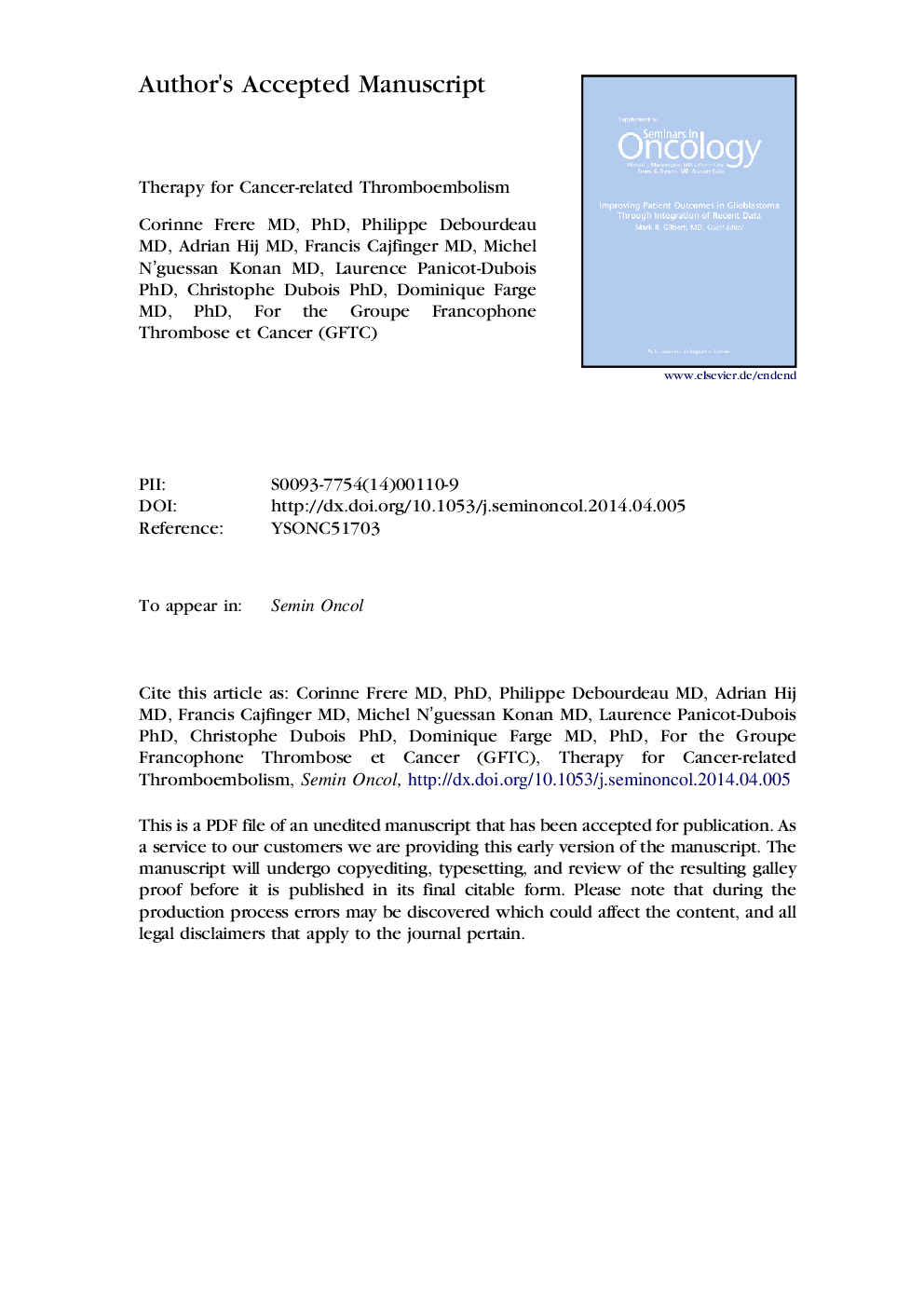| کد مقاله | کد نشریه | سال انتشار | مقاله انگلیسی | نسخه تمام متن |
|---|---|---|---|---|
| 2161941 | 1091222 | 2014 | 39 صفحه PDF | دانلود رایگان |
عنوان انگلیسی مقاله ISI
Therapy for Cancer-Related Thromboembolism
ترجمه فارسی عنوان
درمان ترومبوآمبولی مرتبط با سرطان
دانلود مقاله + سفارش ترجمه
دانلود مقاله ISI انگلیسی
رایگان برای ایرانیان
موضوعات مرتبط
علوم زیستی و بیوفناوری
بیوشیمی، ژنتیک و زیست شناسی مولکولی
تحقیقات سرطان
چکیده انگلیسی
Cancer is an independent and major risk factor for venous thromboembolism (VTE), defined by symptomatic or asymptomatic DVT, including catheter-related thrombosis (CRT), and/or pulmonary embolism (PE). Over the past 20 years, VTE has become the second cause of death in cancer patients, where it accounts for increased morbidity, mortality, and healthcare costs. Incidental VTE is increasingly diagnosed on systematic computed tomography in cancer patients, raising new questions in daily oncology practice. Risk factors for VTE in cancer include patient-, cancer-, and treatment-related parameters, which vary for a single patient throughout the course of cancer disease and necessitate repeated individual risk assessments. The use of biomarkers and risk assessment models allow identification of cancer patients at high risk for VTE. Anticoagulant therapy for the prophylaxis and the treatment of established VTE is efficient and relatively safe when contraindications are respected, but the variety of risk factors and the number of comorbidities remain major challenges for adequate VTE treatment in cancer patients. Several national guidelines for primary prevention and treatment of VTE in cancer patients were issued in the past 10 years. To homogeneize existing Clinical Practice Guidelines (CPGs), an international consensus working group released specific guidelines for the treatment and prophylaxis of VTE in cancer patients in 2013, so as to make each CPG easier to use at the national level. In cancer patients treated for VTE, the use of low-molecular-weight heparins (LMWHs) is preferred over other anticoagulants in most cases, and LMWHs were shown to be superior to vitamin K antagonists (VKAs). For the prophylaxis of VTE, LMWHs have been validated in surgical patients. For medical cancer patients, ongoing or recent clinical trials will inform our practice. However, several questions remain unanswered due to the number of comorbities in a single patient and expert opinion regarding special situations is required. Better adherence worldwide to CPGs necessitates adequate educational and active implementation strategies, which could substantially decrease the burden of VTE and increase survival in cancer patients.
ناشر
Database: Elsevier - ScienceDirect (ساینس دایرکت)
Journal: Seminars in Oncology - Volume 41, Issue 3, June 2014, Pages 319-338
Journal: Seminars in Oncology - Volume 41, Issue 3, June 2014, Pages 319-338
نویسندگان
Corinne Frere, Philippe Debourdeau, Adrian Hij, Francis Cajfinger, Michel N'Guessan Onan, Laurence Panicot-Dubois, Christophe Dubois, Dominique Farge,
